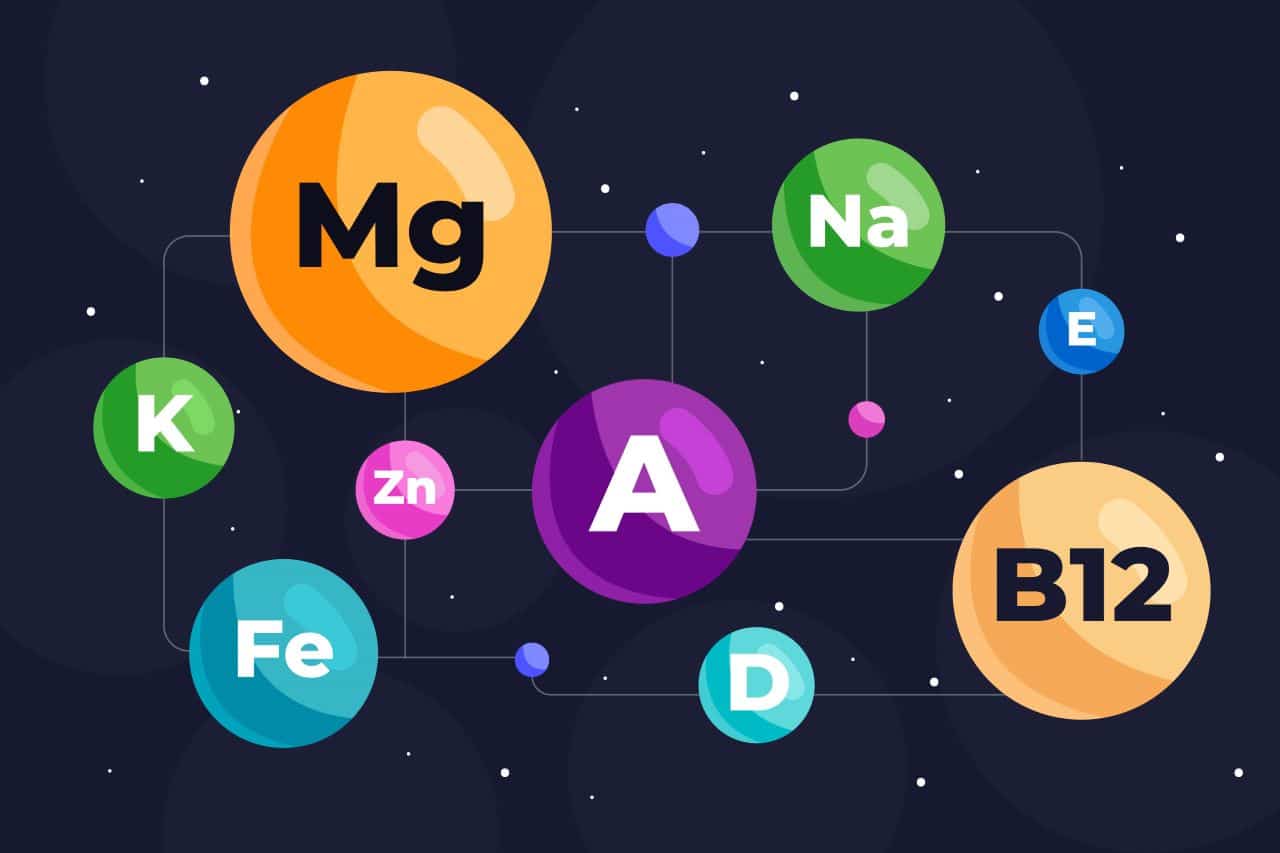Nutrients can help you live a healthier life, and magnesium is one of those nutrients. It’s an essential mineral that supports many functions in your body, including bone health, heart health, muscle contraction, nerve function, blood pressure regulation, and more. In this article, we will discuss the ways to raise magnesium levels quickly and naturally.
Health is the most important thing in the world. It’s the reason we get out of bed every day. It’s the reason we work hard, eat well, and do everything else that makes our lives better. And when it comes down to it, health is about more than just feeling good. It’s about living longer and being able to enjoy your life every step of the way.
Magnesium is a mineral that is essential for the human body. It is required for over 300 biochemical reactions in our cells. Over 300 enzymes depend on Magnesium and its deficiency can lead to heart disease, osteoporosis, stroke, and many more diseases.
Importance of Magnesium in the human body
We cannot deny the importance of Magnesium in the human body. It’s an essential mineral that supports many functions in our body, including:
- Energy production and metabolism
- Bone health and strength
- Heart health and performance
- Nerve function, including sensation, movement, and muscle contraction (including your heart)
It is very important for people who are trying to lose weight because it helps them feel fuller for longer. It can also help prevent muscle loss and improve athletic performance. Magnesium is vital for a healthy metabolism and overall health, including digestion and immune system function. Magnesium is also critical to the proper functioning of your nervous system. It helps regulate muscle contraction and relaxation, which includes your heartbeat and respiration. Magnesium can help treat anxiety, depression, insomnia, and other mood disorders.
What are the symptoms of low magnesium levels?
Some of the common signs and symptoms of low magnesium include:
- Muscle cramps
- Heart palpitations or arrhythmia
- Nausea, vomiting, and diarrhea
- Diarrhea
- Headaches, migraines, and back pain
How can I raise my magnesium levels quickly?
So what are some of the best natural and organic sources of magnesium? Here are some top picks:
Magnesium-rich diet
Rich, leafy greens like spinach, Swiss chard and kale are good sources of magnesium. Other foods high in magnesium include almonds, cashews, and peanuts.
Change in Lifestyle
Adopting a healthy lifestyle is key to raising your magnesium levels. If you’re not getting enough exercise or sleep, it could be affecting your magnesium levels too. And if you’re not drinking enough water, which helps flush out toxins from the body, that can also affect your nutritional status.
Regular Exercise
Physical activity can help your body absorb magnesium more easily. One study showed that people who exercised regularly had higher levels of magnesium in their blood than those who didn’t exercise at all. So if you’re not getting enough, try hitting the gym or going for a run!
Exposure to Sun
If you get enough sun, it can help you make vitamin D, which is crucial for bone health. But it also works to raise magnesium levels in the body. This is because when your skin is exposed to UV rays from the sun, it produces melanin, a pigment that absorbs radiation and prevents damage from harmful ultraviolet rays. This helps boost your levels of vitamin D3 (even if you don’t eat any foods that contain this type of vitamin).
Potential Side Effects of Increased Magnesium Levels
Although magnesium deficiencies are rare, you should be careful with excessive amounts of magnesium. Some side effects of high levels include:
Kidney stones
If you have kidney problems or are on certain medications, you should consult a doctor before taking additional magnesium supplements. High levels of dietary or supplemental intake may increase your chances of developing kidney stones as they can lead to dehydration, especially if taken with caffeine or alcohol.
Heart attack and stroke risk elevation
Studies have linked too little or too much dietary intake of magnesium to increased risks for cardiovascular disease (CVD). One study showed participants who took 300 mg/day had both increased CVD risk and death rate compared to those who took less than 100 mg each day, but this research was undertaken on people already suffering from heart disease or diabetes so it’s unclear how applicable the results were in healthy individuals
Gastrointestinal Distress
Excessive intake of magnesium can lead to diarrhea and stomach cramps. This is particularly true if you’re taking magnesium supplements or drinking water with high levels of natural minerals. It’s also possible that those who are deficient in the mineral might develop gastrointestinal distress when they start supplementing with it, as the body may have been using its stores of magnesium to help maintain homeostasis.
Muscle Weakness
Magnesium plays a role in muscle contraction, and it’s thought that this might be why the mineral is often used to treat muscle cramps. Magnesium is also important for the health of muscles in general, so it makes sense that those who are deficient in it might experience weakness. The symptoms can range from mild discomfort to serious debilitation depending on how much magnesium you’re missing.
Conclusion
We hope you have enjoyed this article and learned something new. It is important to keep in mind that these are not the only ways to raise your magnesium levels, but they are some of the best. You can also check out our other articles on natural ways to increase essential vitamins and minerals or get more information on how magnesium affects your body and health.
FAQs
Q: What is the best way to increase magnesium levels?
A: It depends on your current intake and what type of magnesium you are taking. You can try adding some foods high in magnesium into your diet, or you can take a supplement. If you want to try using supplements, we suggest using a powder or liquid form that’s easy for the body to absorb.
Q: Can magnesium cause diarrhea?
A: It can, especially if you take too much at once. If your stool is loose and watery, then it’s likely that you have taken too much magnesium. Try taking smaller doses of the supplement over time until you find what works best for you.
If you are experiencing diarrhea as a side effect of taking magnesium, try reducing the amount that you take or switching to a different form of supplement.
Q: Can magnesium cause constipation?
A: It can, especially if you don’t drink enough water while taking it. If your stool is hard and dry, then it’s likely that you aren’t drinking enough fluids while supplementing with magnesium. Try increasing your water intake and see if this fixes the problem.
Q: How much magnesium should I take?
A: The amount of magnesium you need will vary depending on your age, weight, and gender. It would be best if you talked to a doctor before starting any supplement regimen. You should also be aware that some medications can cause you to lose magnesium from your body. If you’re taking any of these medications, talk with your doctor about how long it will take for them to clear out of your system and how much magnesium you’ll need to take in order to replenish what was lost.











